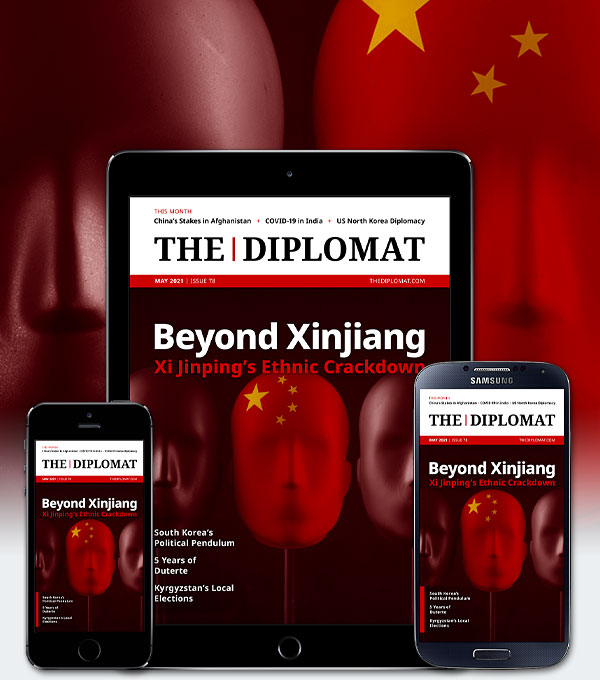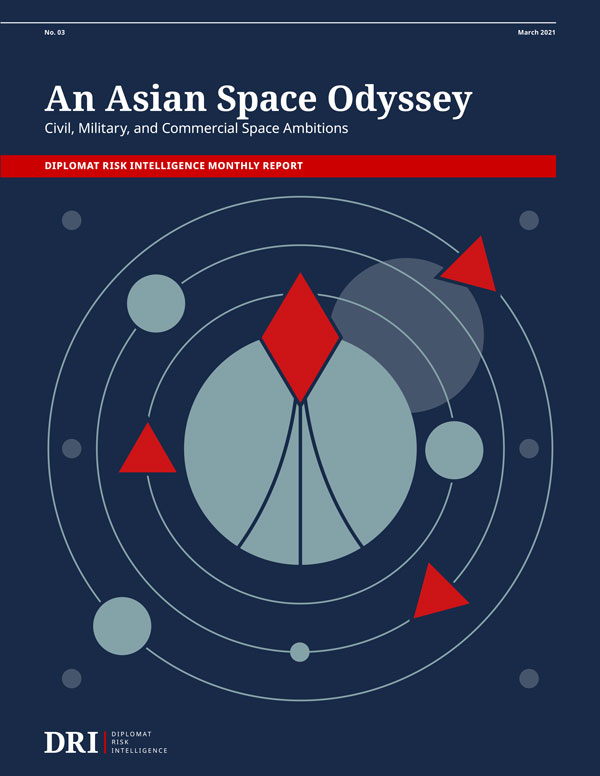| Welcome to the latest issue of Diplomat Brief. This week our top story looks at China’s recent “four-point proposal” for peace in the Middle East, and the history of Beijing’s stances toward Israel and Palestine. We also have an interview with James Chin, a professor of Asian studies at the University of Tasmania, about the question of autonomy for Sabah and Sarawak in eastern Malaysia. |
| Story of the week |  | DIPLOMACY Can China’s Israel-Palestine Peace Plan Work?What Happened: On May 21, a fragile ceasefire brought an end to both airstrikes by the Israeli military in Gaza and rocket launches from Hamas against Israel. The violence, which killed 248 Palestinians and 13 Israelis, including children on both sides, brought global attention back to the never-ending Israel-Palestine conflict. Enter China with its own peace proposal, part of Beijing’s continuing efforts to be seen as a truly global power. Our Focus: While China wants to be seen as a meaningful actor in the Middle East, it does not actually want the headache of trying to forge a workable blueprint for Israel-Palestine peace. As William Figueroa wrote for The Diplomat, the latest “peace plan” was merely a reworking of earlier proposals from 2013 and 2017. Notably, all these blueprints and proposals are vague and have attracted no interest from Israel or Palestine, despite China’s friendly ties with both. “In short, China’s latest four-point plan is simply a rehash of the international consensus, with no real chance of bringing either the Israelis or the Palestinians to the negotiating table,” Figueroa wrote for The Diplomat. What Comes Next: China’s attempt to position itself as a key figure in the Middle East peace process will quickly fade into memory, and that’s just the way Beijing wants it. An offer of mediation that is politely ignored is the best-case scenario: China can point to its offer as proof that it is a responsible global actor, but avoid actually having to make diplomatic sacrifices to see the effort through. “Though China is likely to become an increasingly important player in the Middle East over the next few decades, it is not likely that it will take a substantially different approach to the peace process than any established power,” Figueroa concluded. Read this story |
| Behind the News | INTERVIEW James ChinJames Chin, professor of Asian studies at the University of Tasmania, on the resurgence of demands for autonomy in eastern Malaysia: “Now a whole new generation of young people are angry, vocal, and want Sabah and Sarawak to have full autonomy within the federation.” Read the interview |
| This Week in Asia | Northeast Asia Can Northeast Asia Recapture Its COVID Success?Last year, Japan and Taiwan were among the world’s success stories in battling COVID-19. Their governments managed to keep the initial surge of infections under control. But now both Japan and Taiwan are seeing a scary new wave of infections. That’s especially costly in Japan, which is still forging ahead with plans to host the Olympics in just two months’ time. Can Tokyo and Taipei recapture their previous successes? Find out more | South Asia Bangladesh Cracks Down on Islamist GroupThe Sheikh Hasina government in Dhaka has dialed up pressure on Hefajat-e-Islam, a hardline Islamist group mostly recently behind violent protests around Indian Prime Minister Narendra Modi's visit to Bangladesh in March. Analysts maintain that while the Hasina government had appeased religious extremists in the past, it is no longer willing to risk seeing them morph into terrorist organizations. Find out more | Southeast Asia Senior U.S. Diplomat Sets off for Southeast Asian CapitalsU.S. Deputy Secretary of State Wendy R. Sherman will this week pay visits to Jakarta, Phnom Penh, and Bangkok, the first visit to Southeast Asia by a senior U.S. official since the Biden administration took office in January. Her tour, which will address a range of issues including the crisis in Myanmar and ASEAN-U.S. relations, comes amid a concerted Chinese diplomatic offensive in the region over the past year. Find out more | Central Asia What Does the US Withdrawal From Afghanistan Mean for Central Asia?While the U.S. can up and leave Afghanistan, Central Asia is bound by geography to a front-row seat in whatever is to come. While security risks rank high in regional considerations, the economic impact of further conflict in Afghanistan is of prime concern to the states of Central Asia. Find out more |
| Word of the Week | SOCIETY नकारात्मकताNakaaraatmakata, Hindi for “negativity.” Facing backlash about its abysmal handling of the second wave of the pandemic, the Narendra Modi government in India has embarked on a media campaign of its own to shape the narrative. Its goal? Stay positive and avoid negativity. Find out more |
|  |





